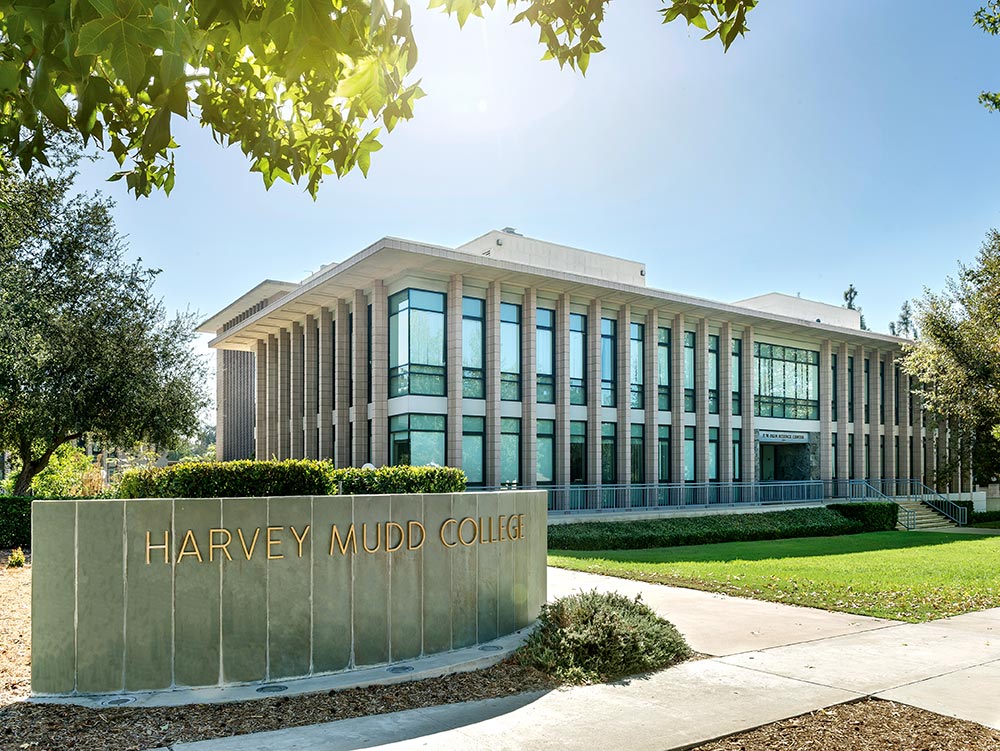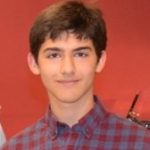NIH Honors Moayeri ’20 for Exceptional Biomedical Research
November 15, 2017
Mazda Moayeri ’20 received an Exceptional Summer Student Award from the National Institutes of Health (NIH) for outstanding research conducted at the NIH’s National Institute of Neurological Disorder and Stroke (NINDS). Moayeri, a joint major in computer science and mathematics, is being recognized for the high-quality of his summer internship work in non-invasive detection and monitoring of multiple sclerosis (MS) disease progression and for his presentation during NIH Poster Day.
 As a resident computer scientist at NINDS’ Translational Neuroradiology Section (TNS) lab, Moayeri developed code that helped accelerate data-processing steps in experiments tied to spinal cord research and worked side by side with leading scientists conducting basic and clinical biomedical research. He also worked in the clinical center, which left him with a strong sense of validation that his contributions could make a difference.
As a resident computer scientist at NINDS’ Translational Neuroradiology Section (TNS) lab, Moayeri developed code that helped accelerate data-processing steps in experiments tied to spinal cord research and worked side by side with leading scientists conducting basic and clinical biomedical research. He also worked in the clinical center, which left him with a strong sense of validation that his contributions could make a difference.
“Often, patients who come to the NIH come out of necessity, as the already established clinical protocols are not sufficient to help these patients,” says Moayeri. “Seeing how many people would come from all over the country to the NIH really led me to believe in what I was working on and gave me a new sense of purpose.”
Moayeri’s work in the TNS lab focused on measuring and capturing data of MS disease evolution taken from magnetic resonance imaging (MRI). Examining MRI scans of spinal cord lesions, Moayeri isolated quantitative data. Typically, this data-collection process is conducted manually, a time-consuming method resulting in inconsistent data capture. Moayeri developed a segmentation method to automate the process. He utilized MATLAB coding software for both an atlas-based approach (comparing multiple spines) and an inductive extraction approach (focusing on just the spine to be segmented).
“I had very limited MATLAB or image processing experience, so I had to pick up a lot of things on the way, but that just made the work more exciting,” he says. “It was really cool to break down a big problem into smaller puzzle pieces for me to navigate each day, especially since I was given the chance to do almost all of it on my own.”
Moayeri appreciated the freedom of independent research that the internship offered in addition to experience working on a team.
“It felt great to have the confidence to ask questions about other people’s work and learn a lot more from the people around me than if I were to have been forced to work mostly in isolation,” he adds.
This was Moayeri’s second tour at NIH; he scored his first internship for the NINDS during his [junior] year of high school. At the time, he was drawn to learning more about the intersection of computational techniques and the medical sciences, and learned a great deal from being exposed to a variety of researchers (physicists, doctors, biologists and statisticians) and their specialties.
As Moayeri continues to consider post-college plans, he aims to gain as much hands-on experience in the areas that interest him the most.
“I hope to get an internship in the tech industry this summer or pursue math research opportunities,” he says. “I still don’t know if I’d prefer to focus more on computer science or math going forward, so hopefully this summer can help me make some progress on that front.”
